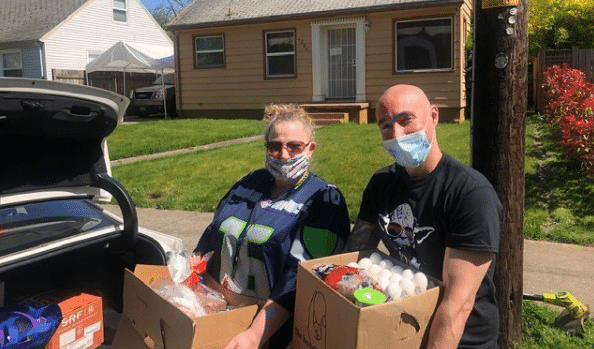Entering treatment is a big step, and for many people the magnitude of the change can feel overwhelming. This is where De Paul / Fora Health’s Peer Mentors play such a valuable role in our recovery programs – they connect patients to resources in the recovery community and model a healthy lifestyle. In working with our Peer Mentors, patients find a level of acceptance, understanding, and validation that is sometimes missing in other professional relationships. By sharing their own experience and practical guidance, Peer Mentors help patients develop goals, create strategies for self-empowerment, and take concrete steps towards a future free of drugs and alcohol.
De Paul / Fora Health’s Peer Services program is run by our ever-positive Peer Mentor Supervisor, Mike Hovey. Mike, like all our Peer Mentors, dons a wide variety of hats. Some days, Mike is leading group activities that introduce patients to healthy outlets for stress like running, gardening, or meditation. On others, he and his fellow Peers support patients one-on-one, helping them prepare for the often-stressful transition from structured treatment to independent recovery. This work includes things like accompanying someone to their first recovery meeting, helping an individual secure a valid ID, assisting a patient in applying for housing, talking through action plans to reduce the likelihood of relapse, and so much more.
“We use our history and past for power and enlightenment — I wouldn’t change a thing about my past because it helped make me the man I am today. Through sharing these stories, we are really impacting people’s lives and are a core part of many patients’ healing and recovery.” – Mike Hovey
Evidence shows that patients being treated for substance use disorders who engaged with Peer Services saw increased self-esteem and confidence 1., reduced hospital admission rates 2., and decreased return to substance use post-treatment. 2 The expansion of Peer Services at De Paul / Fora Health is part of a large-scale movement in the recovery services community to deploy evidence-based services that engage with individuals on a personal level, connect each patient with supportive communities, and ensure folks have access to services that will improve their quality of life in the long term.
As the treatment community works to destigmatize drug use, drug treatment, relapse, and recovery, we are seeing marked shifts in how patients respond to treatment. Treatment programs are still tailored to the individual, but we recognize that sobriety is not a solo activity and Peer Mentors are a key support system walking alongside patients as they make major changes in their lifestyles.
- Davidson, L., Chinman, M., Kloos, B., Weingarten, R., Stayner, D. & Tebes, J. K. (1999). Peer support among individuals with severe mental illness: A review of the evidence. Clinical psychology: Science and practice, 6(2), 165‐187.
- Davidson, L., Bellamy, C., Guy, K., & Miller, R. (2012). Peer support among persons with severe mental illnesses: a review of evidence and experience. World Psychiatry, 11(2), 123‐128.


